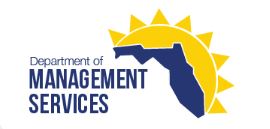Florida selects firm to plan statewide communications system, hopes for 2021 procurement
State of Florida officials hope to begin the procurement process for an upgraded Statewide Law Enforcement Radio System (SLERS) by the middle of 2021, according to sources associated with the state’s Department of Management Services (DMS).
Virginia-based consulting firm Federal Engineering has been selected to lead the planning for the upcoming SLERS procurement, which is necessary because state officials could not reach a contract agreement with Motorola Solutions, which was selected in March 2018 to upgrade SLERS to P25 Phase 2 technology.
“The services to be delivered [by Federal Engineering to the state of Florida] under this agreement are a business case, procurement support, and project management services,” according to a DMS statement provided to IWCE’s Urgent Communications. “DMS will implement the provisions as passed and approved by the Governor and Florida Legislature.”
Members of the SLERS Joint Task Force Technical Committee were told last month that state officials hope Federal Engineering can complete the business-case work in October. Work on the SLERS procurement is expected to continue into next year. State officials’ goal is to let potential vendors begin bidding on the statewide communications project during this fiscal year, which will conclude on June 30, 2021—the same day that the state’s current SLERS contract with L3Harris is set to expire.
Given this timeline, there is no way that the new SLERS system could be ready when the current contract with L3Harris expires in June 2021. As a result, the state formally notified L3Harris in June that it plans to negotiate an extension for the existing SLERS network, which uses aging EDACS technology.
Officials for both L3Harris and the state of Florida have declined to comment on the potential length of an extension, although industry sources have indicated that it likely will need to be for multiple years, given the circumstances.
Industry sources nationwide have been monitoring the Florida SLERS system, because it is the largest statewide network to be built in the U.S.
Florida Gov. Ron DeSantis approved a state budget in June that includes a $2.4 million measure to address the current and future needs of the Statewide Law Enforcement Radio System (SLERS).
In addition to calling for the contract extension, the budget item also calls on DMS to pursue a resolution to a dispute surrounding access to towers owned by L3Harris. This tower issue was one of the problematic issues undermining the ability to reach a contract agreement with Motorola Solutions on a proposed SLERS upgrade to P25 Phase II technology.
Most sources indicated that the biggest dispute in the talks between Motorola Solutions and state officials was the inclusion of a “termination for convenience” clause that would have let the state to back out of the potential 20-year deal whenever it wanted with little advance notice. Motorola Solutions representatives told DMS personnel that such terms were “deal breakers,” even though they had been included in the procurement language when Motorola Solutions submitted its bid. according to a letter from DMS.
In January, DMS announced that it ended talks with Motorola Solutions after the LMR giant declined to sign a contract based on the terms of its bid, according to a state official.
At the time, Florida DMS Secretary Jonathan Satter wrote in a letter to Motorola Solutions that Florida DMS would “move toward the new procurement of a next-generation system.” To date, Florida DMS has not responded to multiple inquiries from IWCE’s Urgent Communications seeking clarification about what technology would be used in a “next-generation system.”
However, the description in the $2.4 million state budget item provides some guidance about the state’s current vision for SLERS II.
“[DMS] must release a competitive procurement and, thereafter, issue an award for the replacement of the Statewide Law Enforcement Radio System,” according to the budget item. “At a minimum, future services must utilize the industry-standard Project 25 Phase II delivery methodology. The procurement must also consider emerging technologies to enhance interoperability, promote public safety, improve coverage and enhance audio clarity.”
This verbiage has been the subject of some speculation within public-safety-communications circles about the type of system the state would procure for SLERS II.
A P25 Phase II system would meet the budget’s stated criteria “at a minimum,” but many note that P25 is not really a “next-generation system,” could take years to procure and may have the same contractual issues that caused negotiations with Motorola Solutions to fail.
LTE-based technologies like push-to-talk over cellular (PoC ) and mission-critical push to talk (MCPTT) are much newer, provide better audio clarity than LMR systems when LTE coverage is available, and they fit the “next-generation” mold. However, they still are considered unproven in mission-critical, public-safety scenarios, although they have gained significant acceptance within the critical-communications community during the COVID-19 pandemic.
Another potential option recently noted by industry observers is a hybrid LMR-LTE system that is designed to utilize the best aspects of P25 and LTE technologies. A form of this hybrid approach is being pursued in Mono County, Calif., where officials are working with L3Harris to develop a system that leverages integrated P25 radio and LTE push-to-talk service that operates on the FirstNet system that provides priority and preemption to public-safety users.
















Negotiations failed due to the “termination for convenience” clause – not due to P25 Phase II technology as implied in the article.